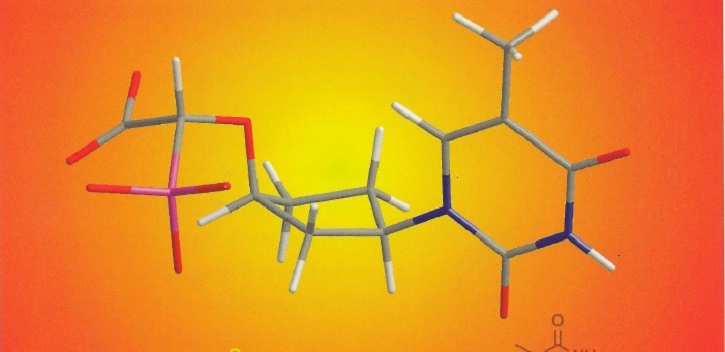New class of compounds may lead to new antiviral drugs

Researchers in the Analytical & Biological Chemistry Research Facility (ABCRF) at UCC led by Anita Maguire, have designed and synthesised a new class of compounds with potential in the discovery of new antiviral drugs.
The biological evaluation of these compounds has been conducted in collaboration with Jan Balzarini at the Rega Institute of the KU Leuven, one of the leading teams in the world in antiviral research.
These compounds, called alpha-carboxy nucleoside phosphonates (α-CNP’s), offer the possibility for new antiviral drugs with an entirely novel mode of action.
The human immunodeficiency virus (HIV) was first identified as the causative agent of acquired immunodeficiency syndrome (AIDS) in 1983. At the close of 2013 there were an estimated 35 million people living with the virus, with approximately 2.1 million people newly infected in 2013. The introduction of HAART (highly active antiretroviral therapy) in 1996 has transformed HIV from a lethal infection to a manageable chronic condition with considerable declines in morbidity and mortality. However, as a result of the high genetic variability of HIV, resistance to current drug therapies is a major problem, and the discovery of new, more efficient antiviral agents is still imperative.
The first class of anti-HIV drugs that were approved, the so-called nucleoside analogues, continue to play an important role in the treatment of HIV and are usually central to HIV chemotherapy offered within a drug cocktail. Critically however, these drugs are not directly active, but instead are pro-drugs which require conversion by host cellular enzymes into an activated form, which then inhibit the viral target being a key viral enzyme involved in the replication of the viral genetic material (DNA) within the host immune cell.
The unique feature of the α-CNP’s is that these compounds are directly markedly inhibitory against the HIV target enzyme and thus do not require prior activation by cellular enzymes. The novel compounds inhibit HIV’s target enzyme by misleading the virus due to their very close resemblance to the natural substrates of the viral DNA synthesis.
Interestingly, the researchers at Cork and Leuven have also succeeded to design closely-related derivatives within the class of α-CNPs that shift their inhibitory efficacy from the HIV target enzyme to the corresponding herpes virus-encoded target enzymes, thereby broadening the potential application of these novel compounds in the antiviral therapeutic field.
Structural biology has been undertaken in collaboration with Eddy Arnold and his team at the Center for Advanced Biotechnology and Medicine and Rutgers University (New Jersey, USA), confirming and visualizing the novel mode of action, while biochemical studies by Matthias Gotte and colleagues from the University of Alberta (Canada) provided insight into the way the α-CNPs act against the viral enzyme.
The research was funded in part by Science Foundation Ireland through the PICA award to Professor Anita Maguire, UCC.
The research has been recently published in The Journal of Organic Chemistry (featured on the Cover of the latest issue) and in the Proceedings of the National Academy of Sciences of the USA.
Design and synthesis of α-carboxy nucleoside phosphonate (α-CNP) analogues and evaluation as HIV-1 reverse transcriptase-targeting agents. S. J. Keane, A. Ford, N. D. Mullins, N. M. Maguire, T. Legigan, J. Balzarini and A. R. Maguire, J. Org. Chem. 2015, 80, 2479−2493.
Alpha-carboxy nucleoside phosphonates as universal nucleoside triphosphate mimics. Jan Balzarini, Kalyan Das, Jean A. Bernatchez, Sergio E. Martinez, Marianne Ngure, Sarah Keane, Alan Ford, Nuala Maguire, Niki Mullins, Jubi John, Youngju Kim, Wim Dehaen, Johan Vande Voorde, Sandra Liekens, Lieve Naesens, Matthias Götte, Anita R. Maguire, and Eddy Arnold, PNAS. 2015, 112 (11), 3475-3480.
